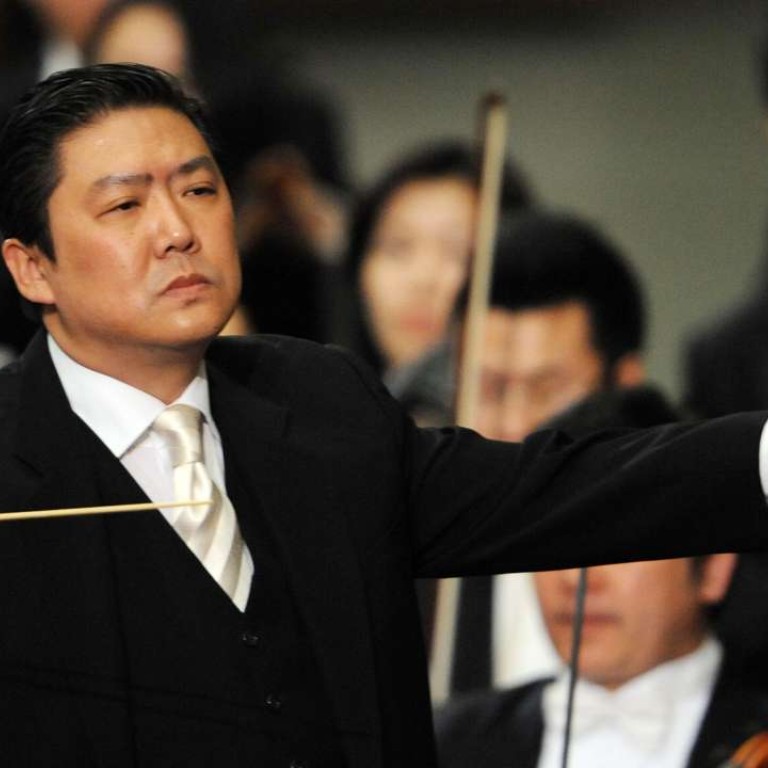
Review: Also Sprach Zarathustra - Hong Kong Philharmonic at its best
From concertmaster Jing Wang’s electrifying solos to the bass section, percussion, brass and woodwinds, orchestra made the most of Richard Strauss’ multi-layered tone poem in concert that also featured the stirring playing of cellist Jian Wang and a world premiere
Composer Du Wei, like many of her fellow graduates of the Central Conservatory of Music in Beijing, is a magician with orchestral colours.
In her new piece, Seven Nights, which was receiving its world premiere, she found unusual instrumental combinations to set a mood of dreamlike disquiet.
The trumpet was the central voice, and the fragmented phrases had a lovely questioning tone, becoming fervent by the end. The piece began with a graceful flute solo, a clever twist on Debussy’s Prelude to the Afternoon of the Faun.
A cluster of echoing woodwinds fluttered over a pensive drone. This minimalist beginning suggested more of the same to come, but instead the music traversed a varied landscape with dramatic, gutsy tuba and cymbals, strident violins and snappy snare rhythms. Conductor Yu Long gave a warm and well-paced interpretation. The ending was ferocious.
Despite the colourful palette, the melodic fragments didn’t get rolling into cohesive, memorable statements, and the harmony as well didn’t gather impact. Perhaps that explained the cool audience reaction.

Although Haydn’s music is modestly conceived, he can penetrate dark psychological realms, and this performance captured that element. Wang differentiated the ranges of the cello with rare poetry, with a gruff, earthy bass, a bold, ringing tenor and a fluting soprano. He played the fast movements with dashing energy, if the pitch was not always perfectly true.
It seems odd that a Viennese composer would write a tone poem about the ancient Persian prophet Zoroaster (or Zarathustra), but it made a perfect excuse for Richard Strauss’s glorious orchestration.
Here the strings came to the fore, from a tender hymn for eight soloists, to the cresting waves of sectional sound, to concertmaster Jing Wang’s electrifying solo in the ecstatic waltz climax. The bass section was also terrific as they introduced a fugue in a subliminal tone like the beating of moth wings.
It’s hard to think of a case where a recording makes a live performance pale in comparison, but the opening of Also Sprach Zarathustra is practically a logo for the movie 2001: A Space Odyssey.
The audience felt the vibration of the organ, the trumpets and timpani did a fine job, but there’s something about this soundtrack memory that makes the concert hall seem lacklustre.
After the beginning, though, the rest of the climaxes were like earthquakes, and the woodwinds, brass and percussion were at their best.
To be sure, at times Strauss’ densely layered, frenzied chaos lost focus and sounded confused. But it all paid off in a radiant ending - Jing Wang again on the violin going up one step beyond the sky over harp arpeggios, the piccolos locking in, and a barely audible final bass pizzicato.
There was a thunderous silence at the end, a well-deserved mark of respect from the Hong Kong audience.
Also Sprach Zarathustra, Hong Kong Philharmonic, Cultural Centre Concert Hall. Reviewed: April 1
